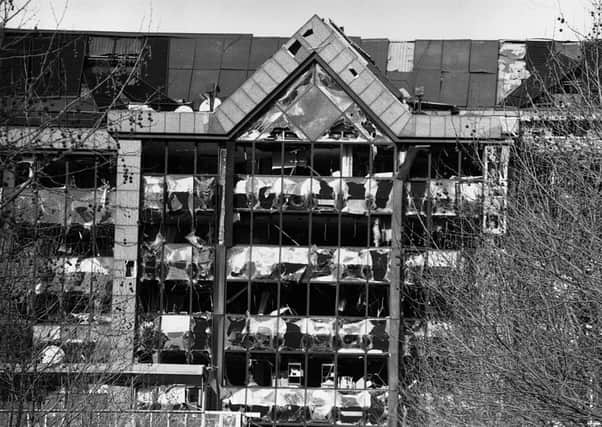IRA Docklands victims condemn government amnesty plans


Two people were killed and many others injured by the IRA bomb, which had been left in a lorry in the London Docklands on February 9 1996.
Some of those who were hurt, as well as family members of victims, met with officials from the Northern Ireland Office (NIO) yesterday to outline their opposition to the government plans.
Advertisement
Hide AdAdvertisement
Hide AdLast month, Northern Ireland Secretary Brandon Lewis announced that he intends to introduce legislation to create a proposed statute of limitations which would end all prosecutions for incidents up to April 1998 and would apply to military veterans as well as ex-paramilitaries.
The proposals, which Prime Minister Boris Johnson said would allow Northern Ireland to “draw a line under the Troubles”, would also end all legacy inquests and civil actions related to the conflict.
The plan has been heavily criticised by all the main political parties in Northern Ireland as well as the Irish government, and a range of victims’ and survivors’ groups.
A statement on behalf of the Docklands Victims Association said: “This has caused immense distress to all the innocent victims of the Troubles.
Advertisement
Hide AdAdvertisement
Hide Ad“On behalf of all the victims of the Troubles within mainland GB, Northern Ireland and the Republic of Ireland we have expressed to the Northern Ireland Office our concerns as we feel very strongly that no amnesty should be issued.
“The killing of innocent people, including children, and leaving people severely disabled are undoubtedly crimes against humanity and should never be given immunity from prosecution.
“This would be immoral and abhorrent to any civilised society.”
Jonathan Ganesh, who was injured in the 1996 bombing, said: “Our offices have been inundated with calls, letters and emails concerning the UK Government’s proposal. I was pleased to meet with the NIO but I do not feel they have thought this policy through.”
MORE NEWS:
Advertisement
Hide AdAdvertisement
Hide AdA message from the Editor:
Thank you for reading this story on our website. While I have your attention, I also have an important request to make of you.
With the coronavirus lockdown having a major impact on many of our advertisers - and consequently the revenue we receive - we are more reliant than ever on you taking out a digital subscription.
Subscribe to newsletter.co.uk and enjoy unlimited access to the best Northern Ireland and UK news and information online and on our app. With a digital subscription, you can read more than 5 articles, see fewer ads, enjoy faster load times, and get access to exclusive newsletters and content. Visit https://www.newsletter.co.uk/subscriptions now to sign up.
Advertisement
Hide AdAdvertisement
Hide AdOur journalism costs money and we rely on advertising, print and digital revenues to help to support them. By supporting us, we are able to support you in providing trusted, fact-checked content for this website.
Ben Lowry
Acting Editor